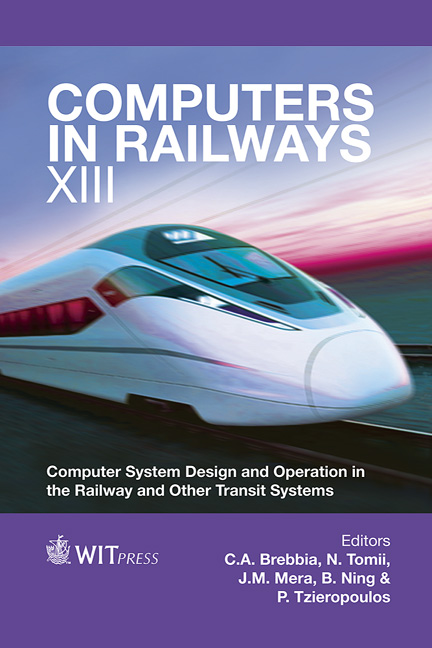CWR Track Vibration Characteristics Varying With The Change Of Supporting Condition
Price
Free (open access)
Transaction
Volume
127
Pages
8
Page Range
745 - 752
Published
2012
Size
2,771 kb
Paper DOI
10.2495/CR120631
Copyright
WIT Press
Author(s)
L. Li & Y. Luo
Abstract
Stress contained in rails, mainly due to thermally-induced expansion and contraction, results in large longitudinal loads which lead to broken rails and track buckling. According to the beam bending theory of structural dynamics with a consideration of the influence of axial load, a test method to measure the longitudinal force in CWR is introduced. This paper studied the elements which will affect the results used in this method such as the total calculation and measurement length of rail, unsupported length of rail. Standard relation curve between longitudinal force and first order frequency was provided. To the actual continuous welded rail, longitudinal force can be calculated according to the standard relation curve after the vibration response frequency of rail in some state is measured. This method would help to evaluate and measure the force in rail caused by temperature change. Keywords: continuous welded rail (CWR), buckling, stability, natural frequency, vibration characteristics.
Keywords
continuous welded rail (CWR), buckling, stability, natural frequency, vibration characteristics





